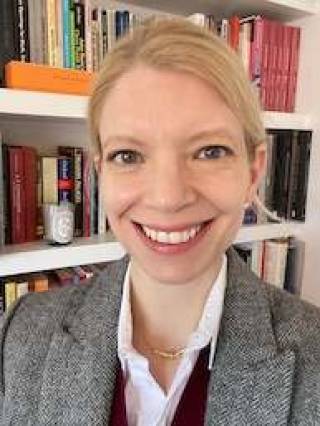Investigating the potential for legislative and non-legislative regulations to curb market demand for illicit antiquities
 | Email: billie.richards.18@ucl.ac.uk Supervisors: |
- Profile
A well-documented increase in archaeological looting presents a significant threat to communities worldwide, causing a devastating loss of cultural patrimony and economic development opportunities, exploiting and endangering vulnerable labourers, and irretrievably damaging archaeological research. Most efforts to prevent looting have focused on protecting and retaining cultural property within source nations. While this is a necessary first line of defence, overreliance on home-country protections places an untenable burden on source nations, which are disproportionately developing economies with limited resources for such efforts.
Increasingly, heritage professionals are calling for new approaches focused on reducing market-nation demand for illicit antiquities, which should disincentivise looting by making it unprofitable. Two main approaches have emerged: The first calls for harsher legal penalties for those selling and buying illicit antiquities; a second emphasises non-legislative strategies to reduce demand, including educational campaigns, improved industry ethical codes, and the provision of consumer resources to encourage responsible collecting.
My research takes a data-driven, mixed methods approach to evaluating the potential for either strategy to reduce market-nation, evaluating the market impacts of existing UK and US cultural property laws and investigating whether and how non-legislative, anti-trafficking reforms adopted by other markets (e.g., industry-led efforts to cull “blood diamonds”) might be adapted to the antiquities trade. Toward this end, I am investigating the following questions:
- How have UK and US efforts to police illicit cultural property affected the antiquities market in those nations?
- What lessons can be learned from industries that have adopted non-legislative anti-trafficking regulations?
- What legislative and non-legislative approaches hold the most promise for reducing demand for illicit antiquities going forward, keeping in mind that any successful policy must withstand scrutiny from an influential, regulation-averse art market?
This research will generate actionable data and recommendations of use to policymakers, law enforcement, heritage and cultural sector professionals, and good-faith antiquities market participants.
Education
- BA, International Studies and Political Science, West Virginia University, 1998
- JD, University of Georgia School of Law, 2001
MA, Archaeology and Heritage of Egypt and the Middle East, UCL, 2020
 Close
Close

